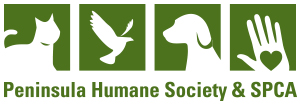Wildlife Transportation Volunteer
LOCATION: Volunteers will travel between our wildlife care locations in Burlingame and San Jose, and Saratoga.
Burlingame: Tom & Annette Lantos Center for Compassion located at 1450 Rollins Rd, Burlingame, California
San Jose: South Bay Wildlife Center located at 3027 Penitencia Creek Rd, San Jose, California
Saratoga: Wildlife Care Center (opening spring 2024) located at 24103 Congress Springs Road, Saratoga, California
SUPERVISOR: Wildlife Rehabilitation Department Manager
GOAL OF POSITION: Perform necessary transports in support of sick, injured, and orphaned wildlife.
TIME COMMITMENT: Commit to at least one regular transport shift per week for a minimum of one year. There are both regular transports that occur almost daily, and on call transports. A typical on call window is two to three hours long, and usually involves one to three hours of driving.
DUTIES: Safely transport sick, injured, and orphaned wildlife to and from different locations in the Bay Area, including but not limited to the Peninsula Humane Society & SPCA locations in Burlingame, San Jose and Saratoga, and selected partner organizations. Will also sometimes be asked to transport donated produce, supplies, or other items.
TRAINING: Completion of New Volunteer Orientation and Intro to Wildlife. Additional on-the-job training provided by the Volunteer Coordinator and/or Wildlife Rehabilitation Department Manager.
QUALIFICATIONS: Volunteers must provide their own vehicle with fully functional climate control. PHS/SPCA does not reimburse for gasoline, mileage, or electric charging. Clean driving record and valid insurance. Able to represent PHS/SPCA in a courteous and professional manner. Good physical stamina and the ability to load heavy items in and out of a vehicle. This position is open to those 18 and older.
EMOTIONAL CONSIDERATIONS: As with the Wildlife Care volunteer role, Wildlife Transportation Volunteers will encounter many animals that simply do not make it. Transporting these patients gives them the best chance at remaining wild to have a second chance at a wild life. You must not interact with the animals as if they are owned animals to prevent them from any possible habituation towards humans as their very lives depend on it.
